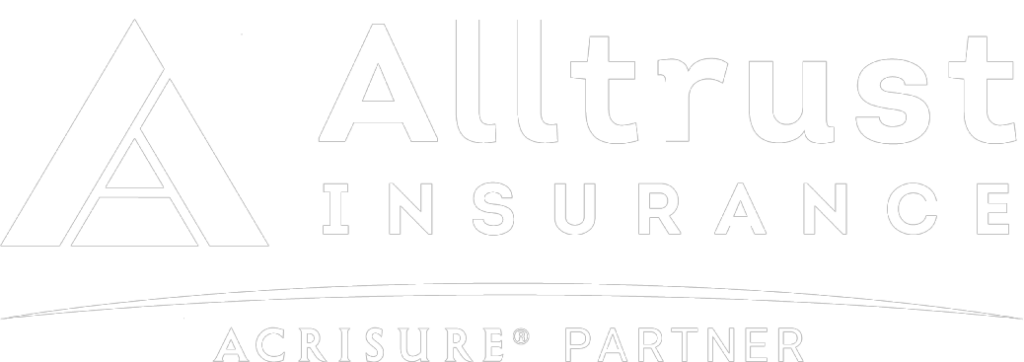CFOs are accustomed to seeing the cost of health care benefits for their company rise each year, often by a double-digit percentage. Employers have to typically absorb these increases and sometimes compensate by decreasing the quality of benefits provided.
Health care benefits are usually the second largest expense for employers after payroll. That’s why it’s vital to explore all your health care benefits options.
Luckily, there are now a large number of ways to counter rising health care costs. For “small” businesses with fewer than 500 employees, self-insurance can be a great route to reduce premiums and provide your team with tailored benefits to fulfill their needs. In this blog, we will discuss possible health care benefits options and explain why self-insurance may be right for you.
What Is Self-Insurance?
With the drastic rise in healthcare costs, self-insurance is a great option to potentially save money. But what is it?
Self-insurance is when a business forgoes traditional insurance coverage and takes on all financial risk by setting aside money to pay employees’ healthcare claims and benefits. Employers who self-insure pay out-of-pocket only for claims and damages as they occur. This is especially beneficial for low-risk businesses as you do not have to pay for potential claims that never occur.
How To Set Up A Self-Insured Plan
Setting up a self-insured plan isn’t as simple as collecting money from employees each month and setting it aside in a piggy bank. It’s still essential to work with a benefits broker to help guide you through the process. Working with an experienced team will help you determine the exact healthcare plan and benefits you want to provide and give you a general idea of costs.
Advantages Of Self-Insurance
There are several reasons why a small business would elect to self-insure. For example, self-insurance helps businesses protect themselves from increasing premiums and pay only for benefits that are used.
With a self-insurance plan, businesses must analyze their risks and assess how much money to put aside based on past and future evaluations. As long as there are no serious accidents within your organization, self-insurance helps mitigate the amount of money that goes unused in your insurance plan.
Self-insurance can also help your company save money through lower costs of operation. Expenses through a third-party administrator are usually lower than a fully-insured program provider.
The following are a couple of other advantage points of self-insurance to consider:
- Personalized Plans: Self-insurance plans offer a wider range of policy options. Your company gains the advantage of increased flexibility to design a healthcare plan tailored to your employee’s needs. You as the employer get to decide what the plan will cover including employee eligibility, covered benefits and exclusions, employee cost-sharing, policy limits, and retiree benefits. No longer does your plan have to conform to a one-size-fits-all structure that traditional insurance follows.
- Improved Data Tracking: Operating a self-insured plan allows your company to access more detailed healthcare data. You will have a complete breakdown of your employee’s health care claims and administrative expenses. Improved data will also allow your company to craft tailored wellness programs that help decrease risk and lower healthcare costs.
- Lower Premiums For Employees: Not only can your business save money but these savings can be passed on to your employees as well. A self-insured plan helps reduce insurance premiums and allows employees to pay less out-of-pocket than with a fully-insured plan. It’s a win-win situation.
Risks Associated With Self-Insurance
Although there are many reasons self-insurance is a great option to choose, there are inherent risks associated with it.
As previously mentioned, you will have to work with a benefits broker to help carry out services that are typically done by the insurance company under a fully-insured plan (this is where Alltrust’s services come in handy).
Self-insurance, at its core, is about risk versus reward. Your business is ultimately responsible for the administration of your health care benefits and claims. If you have an unfavorable year with lots of claims, a self-insured plan can end up costing you more than a traditional plan.
Also, like any other business investment, outside factors can make a self-insured plan difficult to manage. These plans usually require a three to five-year implementation period before your company starts reaping rewards. Therefore, a number of events such as a recession or pandemic could affect your policy.
Further Considerations
There are many moving parts and factors that determine whether self-insurance would be beneficial to your business. Employers who choose to self-insure must investigate added coverage options. This holds true for small businesses.
Employers who self-insure may qualify for stop-loss coverage. This policy protects your company against outrageous claims. A stop-loss policy refunds employers for claims that go beyond a dollar amount specified in the policy.
Employers also need to consider that they often won’t be covered in workers’ compensation plans with self-insurance because they’re the ones paying for the claims.
Self-insurance plans offer great benefits but also intimidating risks. Both small and large companies can save a lot of money by not paying insurance premiums, but at the same time, you are inheriting all the risk. Employers need to weigh the cost of insurance premiums against the possibility of expensive claims or losses to determine if self-insurance is right for them.
Alltrust Insurance Offers A Helping Hand
As an employer, your main objective is to provide your workforce with the necessary health care benefits to support their well-being while reducing overall costs to the company. This is easier said than done. However, with the guidance of Alltrust Insurance, we can help you reduce costs by evaluating your company’s risks and budget.
With over 20 years of experience in the industry, we have the knowledge and expertise to take care of all your employee benefits needs, no matter what type of insurance works best for you. Please contact us to see how we can help your business start saving today.




